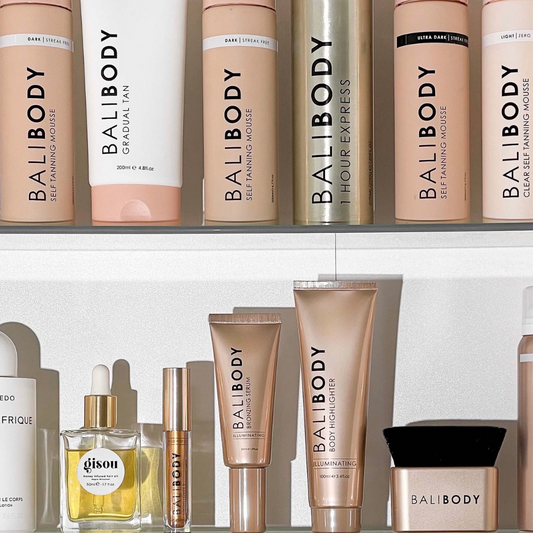Sensitive skin refers to a range of reactions that can occur, such as inflammation and redness, flaking and dryness, rashes and bumps, or stinging and burning sensations. These reactions can be caused by products applied to the skin, or as a result of skin conditions such as eczema or psoriasis. However if you experience dry or tight skin, it doesn’t necessarily mean you have sensitive skin - you may have just stripped your skin's moisture barrier, which can be caused by harsh products or over exfoliating.
Exfoliating is an important step in your skincare routine that needs to be done correctly to avoid irritation. Exfoliating is the process of removing these dead skin cells to uncover a fresh layer of cells underneath and promote new cell growth, leaving your skin softer and brighter as well as removing bacteria and unclogging pores to prevent acne. It also improves the effectiveness of your following skincare products, as they are able to penetrate more deeply into the skin.
Without exfoliating, the buildup of dead skin cells and debris can impact the appearance of your skin, leaving it dull, dry and rough while also causing clogged pores, blemishes and acne.

What are the differences between chemical and physical exfoliants?
Chemical exfoliants contain acids and enzymes that gently remove dead skin and debris by causing a mild chemical reaction. They are applied topically to your skin and can be washed off, or left on on the skin.
Physical exfoliants are made with granules such as jojoba beads, ground walnut shells, sandalwood powder, sugar or even plastic beads and have a grainy texture. The work by removing dead skin and debris through abrasion. The product is rubbed against your skin and then washed off.
Which exfoliant is better for sensitive skin?
Chemical exfoliants are a more gentle method of exfoliation as they don't require scrubbing. Scrubbing can cause micro-tears that weaken the skin barrier making skin prone to dryness, flaking, redness and irritation. When it comes to chemical exfoliants, the main two are AHAs and BHAs, each targeting different skin concerns.
Alpha hydroxy acids (AHAs)
Alpha Hydroxy Acids (AHAs) such as lactic acid present in chemical exfoliants are beneficial for sensitive skin as they are a water-soluble molecule, which enhances the skin's natural moisture levels. AHAs are recommended for those wanting to improve skin texture, reduce pigmentation and promote a healthy, glowing complexion.
Beta Hydroxy Acids (BHAs)
Beta Hydroxy Acids (BHAs) such as salicylic acid present in chemical exfoliants have anti-inflammatory and antibacterial properties to reduce irritation. These are recommended for those with acne-prone or congested skin as they work to remove dead skin cells that cause congestion and clean out bacteria from pores that can lead to breakouts.
We recommend using our BB Skin Enzyme Exfoliant which has been formulated using mild fruit acids and enzymes making it suitable for sensitive skin. The active ingredients in this exfoliant include papaya enzyme to soothe irritation and inflammation, lactic acid to improve skin tone and texture, and green tea extract to improve the skin's natural moisture level.

Tips for exfoliating sensitive skin
- Incorporate a gentle exfoliant into your skincare routine 1-2 times per week and monitor how your skin reacts, if no irritation occurs you can gradually increase the frequency of use.
- Always follow with products that will restore moisture in your skin to reduce irritation and maintain a healthy skin barrier. We recommend using our Pro Collagen Cream which contains hyaluronic acid to alleviate dry skin.
- Chemical exfoliants can make skin more sensitive to sun exposure so ensure you apply SPF daily.




